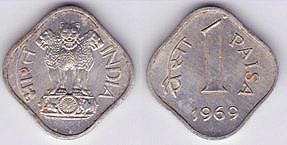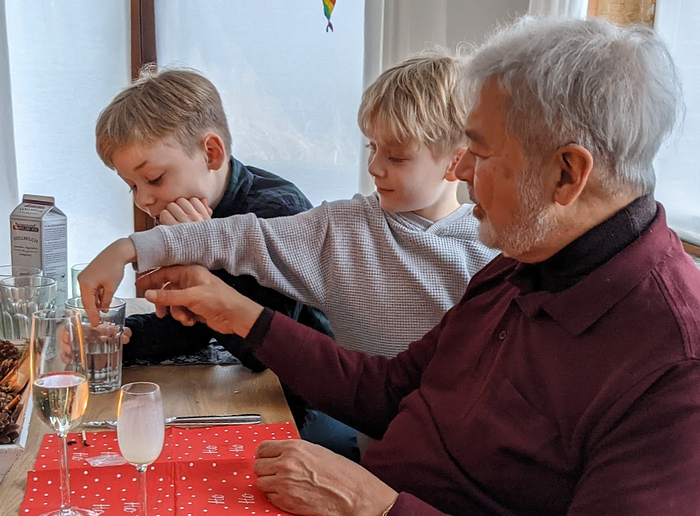The art of skepticism
It is not enough to claim to be critical, you also need to act to prove it. And to understand scamming.
In a previous article I mentioned that in the late 1970s, as a young student of the Philosophy of Science, I became part of a group called the Committee for the Scientific Investigation of Claims of the Paranormal (CSICOP). The founding members included scientists, academics, and science writers such as Carl Sagan, Isaac Asimov, James Randi, Martin Gardner, and many others. I became a fellow, in charge of the German section, and spent some blissful years acting in and on behalf of the CSICOP (which later changed its cumbersome name to “Committee for Skeptical Inquiry” or CSI). I got to know all the founding members named above, and many other equally fascinating personalities.
With my Indian connections I found myself, on multiple occasions, in the city of Bangalore — today the technological center of the country. There I investigated the magic and superstition surrounding snake charmers, but also visited the ashram of Sathya Sai Baba, a mega-guru and “godman” whose trademark was the materialization of vibhuti (holy ash) and small objects such as rings, necklaces, and watches (with full Swiss serial numbers) out of thin air. It was particularly infuriating to me to recognize the vibhuti trick as something I could get from a local Hamburg store called Zauber Bartel: little tablets that you could rub to produce copious amounts of “ash”.
Anyway, I spent one visit to Bangalore trying to get a group of skeptics together as a branch of CSICOP. I found a number of enthusiastic young people, mostly college students, who were willing to pledge alliance and join our investigation team. All hard-nosed skeptics. The only problem was, I discovered, that they basically all believed in magic. Their goal was to discredit the gurus and miracle men they thought were using tricks, and not the genuine ones. How often did I hear sentences like “Yeah, you’re right, he is using a trick — but there is this guru in Delhi who can actually…” and then a lot of hearsay? A discouraging start.
I want to recount two incidents from that time that have stuck in my mind. The first was in a restaurant with about a dozen wannabe skeptics. Before the delicious South Indian vegetarian dishes were served I did an experiment.

In casual terms I mentioned that the Indian one paisa coin — India had a decade earlier switched from Rupees, annas and pies to the decimal Rupees and paisa — was the only coin in the world that floated in water. “But it’s made of metal,” someone protested. Yes, I said, it’s made of an alloy of aluminium and magnesium, but it is a metal foam. The main part of the coin is simply air! That is why it is so light and floats. I pulled out a one paisa coin, as did others in the group. Everyone agreed: it is incredibly light (just three quarters of a gram). The only coin in the world that floats? That’s cool!
We proceeded to discuss other subjects. After dinner, an hour later, I came to the point of the above experiment: “Look, people, there were eight glasses of water on the table, and jugs to refill. How come nobody, not one of you, with the coin in their hands and the filled glasses on the table, thought of testing my claim? Just drop the coin into the glass and watch it sink like a stone.” There was embarrassed mutter, while some actually tried it now. “You are an eminent scientist, so we believed you.” In spite of the fact that a decisive test was one foot and five seconds away? You guys have still a lot to learn!

Incidentally, a couple of decades later I tried exactly the same experiment with my grandsons, using a one-paisa coin I bought on eBay. I was still in my narrative when Hennes ran into the kitchen and returned with a glass of water. And the two refuted what I was asserting. Well-trained skeptics!
The second incident occurred in a private home where we were meeting and holding discussions. I was illustrating some points with simple conjuring tricks when suddenly there was a commotion at the door. My wife left to investigate and came back with the information: “Jo’s leaving, she thinks you are a devil and practicing magic.”
Jo was a college lecturer in her thirties, intelligent and highly learned. I went to the door and convinced her to return to our discussion, telling her that I was using simple tricks and would explain them all. She sat down reluctantly and I proceeded to describe a card trick I had just performed.
“First you selected a card and inserted it in the deck, and I used this method to bring it to the top” — I showed her one of the many ways card sharks do it. “Yes, but you used mind control to force me to pick it!” Jo said. She was referring to the second part, where I had laid down sixteen cards, face down, in a grid of 4x4, and got her to point to the one she had originally chosen.

The trick is of course that I told Jo to pick one half of the cards, horizontally or vertically, and depending on whether it contained the selected card I either removed the half she was pointing to, or the other half. Pointing can be interpreted as “keep this group” or “remove this group.” The same for the rest of the cards. When your victim points to one half you either remove it or leave the cards of that group on the table. You end up with one card, the one that was originally picked. Do it quickly, with constant patter, and nobody will notice the subterfuge.
I laid out the sixteen cards as shown above. “Okay, Jo, I know which one is your card, and I will use a really simple trick to get you to pick it. I’ll show you how it is done. Choose one half of the cards.” Jo nervously did this, placing her finger on one of the sixteen cards on the table. It happened to be the one she had originally selected.
I spent some time pondering what to do. This was a meeting to enlighten amateur skeptics, to show them how easily people can be fooled. On the other hand it was such a great chance, one that only comes once in a lifetime (well, actually once in sixteen attempts). So after careful deliberation — for a number of nanoseconds — I said: “Now turn it over.” Which Jo did. She let out a terrified scream and rushed for the door.
Of course I chased her down and used physical force to return her to the group, where I explained everything with full truthfulness and clarity. Jo nodded, accepting my explanations, but remained glum and defensive for the rest of the evening. I think she probably believes, to this day, that she had encountered someone with genuine supernatural powers, someone who for some devious reason was pretending to use tricks. It is not the only time that this has happened to me.
